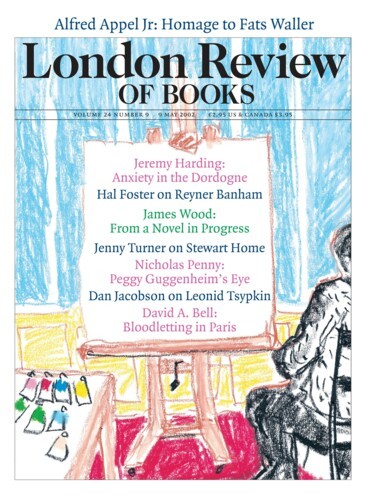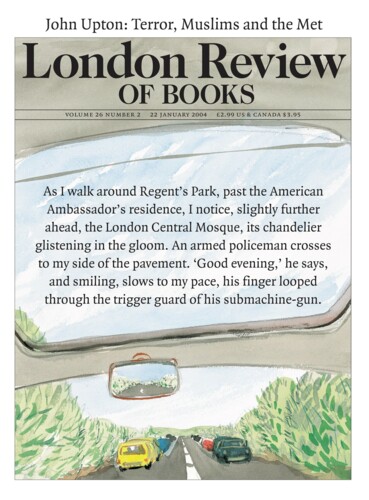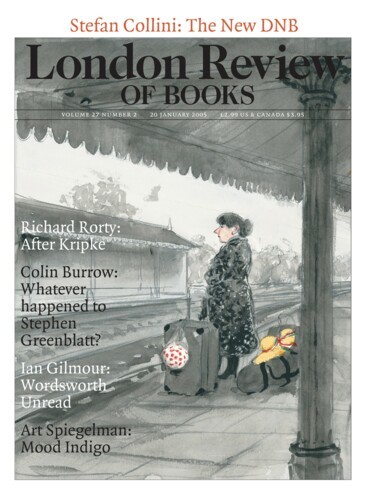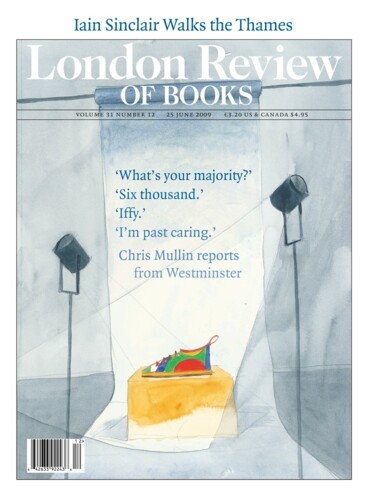Francine-Machine: Automata
Jonathan Rée, 9 May 2002
Descartes’s Meditations tells the story of six days in the life of a rather self-important, busy young man who has granted himself a short sabbatical. Quite a few years have passed, he says, since he decided to take this meditative mini-break, and now at last he has cleared a whole week to spend in an isolated house with only his thoughts and memories for company. He is planning to...





